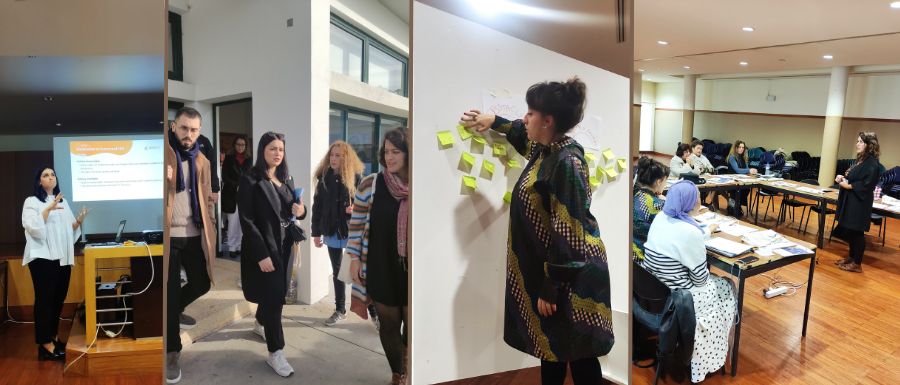In a significant stride towards inclusivity and empowerment, the consortium of partners of the project EXTRA-C convened for a pivotal Training of Trainers event from January 23 to 26 in Porto, Portugal. Hosted by APROXIMAR, the training aimed to equip participants with the necessary tools and methodologies to promote the democratic participation of young people with intellectual disabilities.
Throughout the training, partners showcased the outcomes of the training modules developed within Work Package 3 (WP3) and received comprehensive training in the methodologies outlined in these modules. These modules, now ready for national implementation, are tailored to engage young people with intellectual disabilities in meaningful ways.
This gathering not only facilitated the sharing of results but also provided a platform for valuable feedback and potential revisions to enhance the effectiveness of the activities
Central to the training was the exploration of various topics pertinent to political participation. The training manual, aptly titled “Promoting the Democratic Participation of Young People with Disabilities,” delves into critical areas including:
- Human and civil rights of people with disabilities
- Democracy and democratic participation of people with disabilities
- The main European values
- A voice in the decision-making process
- Relationships and socio-emotional learning
- Participatory actions of people with disabilities
One notable session during the training was led by ALDA, who spearheaded Module 2. ALDA introduced an activity from the Compass: Manual for Human Rights Education with Young People, titled “On the Ladder.” This activity aimed to illustrate the various levels of youth participation within the democratic decision-making process, emphasising the importance of inclusivity and accessibility at every level.
Recognising the significance of firsthand experience in understanding the challenges faced by young people with disabilities, the training program also included a study visit. Hosted by the Centro de Inclusão Social, this visit offered valuable insights into the daily lives of individuals with disabilities and highlighted the supportive structures in place to facilitate their autonomy.
During the visit, participants witnessed firsthand how individuals with disabilities engage in a wide array of activities catered to their interests and passions. From kitchen labs to art labs, theatre labs, computer labs, and more, the activities offered at Centro de Inclusão Social exemplified a holistic approach to empowerment through engagement and inclusion.
The training concluded on a high note, with participants equipped with newfound knowledge and methodologies to drive positive change in their respective communities. By fostering an inclusive environment and promoting the active participation of young people with disabilities, initiatives like EXTRA-C are paving the way for a more democratic and equitable society.
